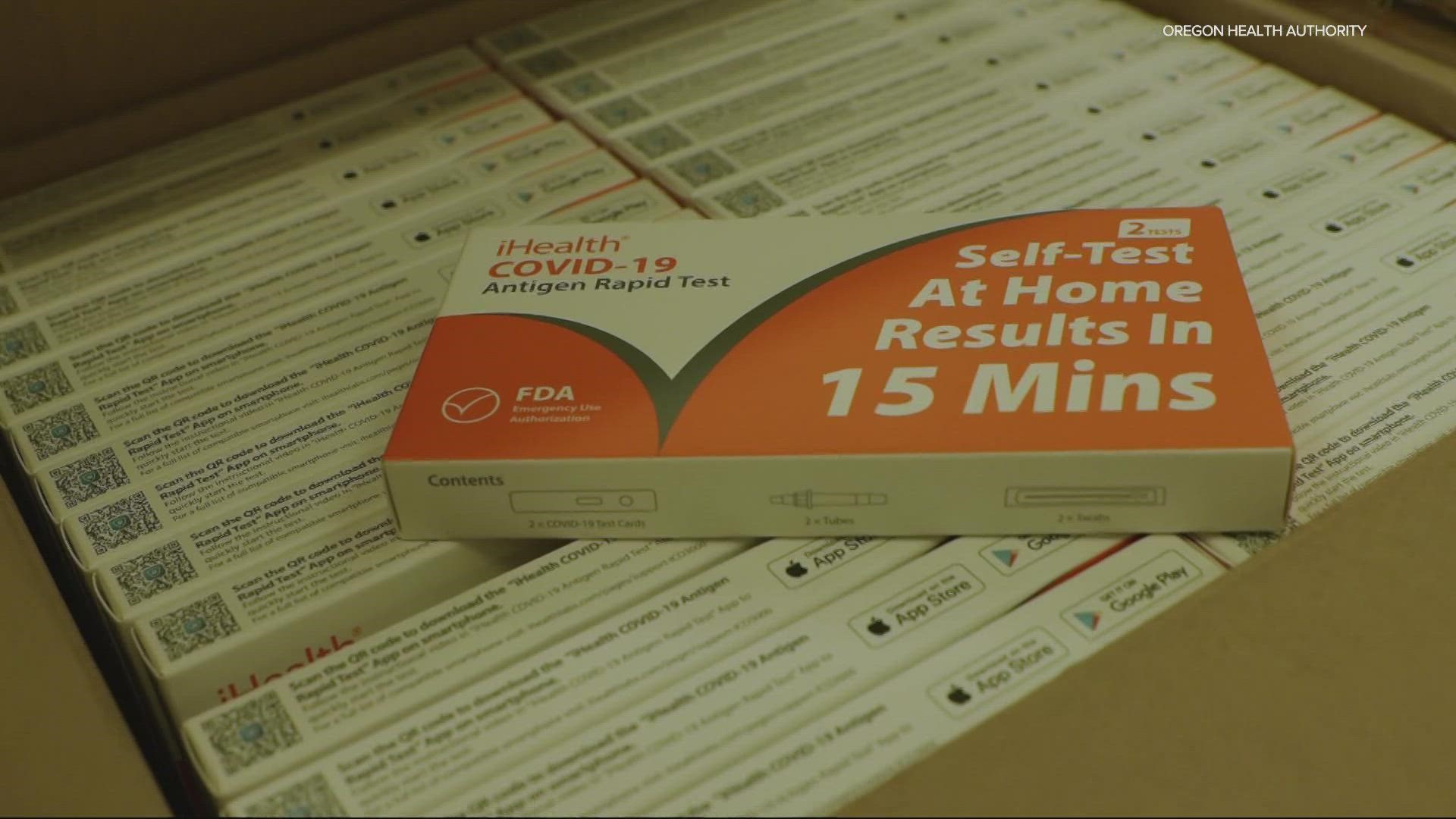PORTLAND, Ore. — The Oregon Health Authority (OHA) has received nearly 200,000 at-home COVID-19 test kits that will be distributed to health care workers and K-12 schools as soon as Friday, an OHA spokesperson said Wednesday.
On Dec. 30, the state ordered a total of 6 million test kits as demand has skyrocketed with the fast-spreading omicron variant.
In the past two days, Oregon broke back-to-back records for most COVID cases reported in a single-day. The state reported more than 4,500 cases Tuesday and more than 6,200 on Wednesday.
Oregon is expecting weekly shipments of testing kits throughout this month, a spokesperson said in an email. Each kit contains two tests.
OHA said it doesn't have the capacity to send out all the tests on its own to individuals, so it will be relying on local organizations and partners to send at-home tests to the following groups:
- Local public health authorities and Tribes based on population size and some health equity metrics
- Migrant and seasonal farm and agriculture workers
- Head Start and some other high-risk early learning settings
- K-12 schools to support at-home test to stay
- Health care workers
- Shelters
- Community-based organizations
In Washington state, Gov. Jay Inslee said about 5.5million at-home tests will be distributed and the state will also open a new mass vaccination site.
Inslee said Washington has received 800,000 at-home tests with another 2 million expected this week. The state plans to make these tests available through schools and local health departments with a focus on distribution to underserved communities.
To expand its testing infrastructure, the state is partnering with CareEvolution and Amazon and is creating a web portal for families to order tests directly to their homes. The state said the portal will be available within the next couple of weeks.
Many people who've tried to get a COVID test in recent weeks have had a difficult time finding one. Others have had to contend with long lines and other challenges.
“Access to testing is difficult and that really speaks to the transmissibility of this virus and the number of people who are getting infected so rapidly,” said Dr. Katie Sharff, chief of infectious disease with Kaiser Permanente Northwest.
Sharff suggested those with COVID symptoms should not depend on getting a test to confirm their diagnosis if it means waiting several days to get one.
“If you have a sore throat, muscle aches, runny nose, fever and you can't get access to a test, I think you need to presume that you are a positive and isolate as such,” said Sharff.

